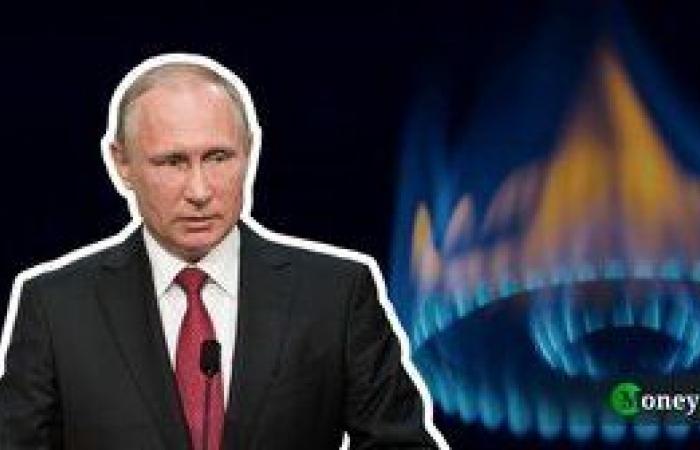The failure of economic sanctions against Russia it proved what everyone in the West knew, or should have known, all along: sanctions are a tool of dubious usefulness.
The threat of sanctions has not been even remotely a deterrent to Moscow’s ambition to invade Ukraine. Once the war began, the actual implementation of sanctions was so, shall we say, erratic that their effect on the Russian war effort was, to be politically correct, marginal. The technologies necessary for Russian weapons manufacturers continue to flow through third countries.
Why sanctions against Putin and Russia don’t work
The very idea of using economic sanctions to counter a military clash appears completely meaningless. But if the West shuns a military response, economic sanctions actually represent the only resource to “attack”.
But hindsight, which is always right, tells us that relying on the alleged effects of economic sanctions was a mistake. True, what we might call a moral commitment to the defense of Ukraine made it imperative to respond in some way, but the action was slow and ineffective.
According to Financial Timesin the first year of the war the European Union gave Russia more money to buy oil and gas than it has allocated to Ukraine in two years. Fearing the consequences on the energy market, the Germany fought to exclude Russian gas (and Gazprombank) from sanctions.
A move already foreseen by Moscow, which from the beginning minimized the impact of the threatening Western rhetoric. Not to mention that Russia had already experienced eight years of “soft” sanctions imposed in response to the 2014 invasion of Crimea. Why would the Kremlin believe that this time would be different?
But Germany was not the only one to fight against a full application of sanctions. When the European Union tried to curb Russian capital generated by oil exports, the Greek shipowners they intervened by offering their tankers to avoid the restrictions.
Also there Poland contributed to helping Russia. In December 2023, Polish exports to Belarus reached record levels, with items clearly destined to end up in Moscow as well. One discrepancy has infuriated some Ukrainians: While Polish farmers block Ukrainian trucks trying to enter the country with vital cargo, Polish trucks trade with Russia across the Belarusian border.
Each state within the EU has a different level of exposure to the Russian market, it was obvious that reaching an agreement on the sanctions package that could have a concrete impact would be complicated to achieve. Thus, month after month, all possible loopholes were found.
Putin’s alternatives
It is not surprising to learn that many Russian clandestine operations were already active since the beginning of the war. While some countries have indirectly helped Russia more than others, few, if any, can claim that they did not contribute to the failure of sanctions.
An investigation by Insiders revealed that a Russian GRU military intelligence agent, based in Brussels, supplied Russian weapons manufacturers with European-made hardware to measure coordinates, the same ones that are used to make hypersonic missiles.
Creativity in finding new ways to evade sanctions has far outweighed bureaucratic efforts to coordinate stakeholders.
But let’s get to the heart of the problem. How can you expect that private sector actors shoulder the burden of cutting all connections with Russia, just for moral reasons? The lack of rigorous controls to ensure everyone’s compliance with sanctions meant that personal interest prevailed over ethics.
Despite the intentions of Ukraine and its allies to pillory companies that remained operating in Russia, many of them simply assessed the profits generated in the Russian market to be worth much more than the damage to their brand and concluded that remaining in Russia was the best choice to make.
For what concern flow of electronic products – of fundamental importance – that Western manufacturers supply to the Russian arms industry, it is difficult to believe that national governments are not aware of what costs the companies are making. Data already shows an increase in exports to Russia via Central Asian and South Caucasus countries following the invasion of Ukraine.
Kiev officials’ attempts to shame Western politicians visiting Ukraine by showing them the debris of downed Russian missiles containing electronic components from their respective countries of origin are of no avail.
And Russia is not the only country to receive Western-made electronics products for use in the weapons industry. According to a CNN report, the North Korean missile that hit Kharkiv in January was made up mostly of Western components: of the 290 pieces examined, 75 percent came from American companies, 16 percent from European companies and 9 percent from Asian companies.
The Russian arms industry has recovered its inflow of electronic supplies to levels close to pre-war volumes, and Western luxury goods have returned to the shopping centers of Moscow and other major cities. The consequence is now clear: within the Russian regime the belief that the war can still be won is strengthened, because the West appears destined to shatter in the attempt at impossible cohesion against Putin.








